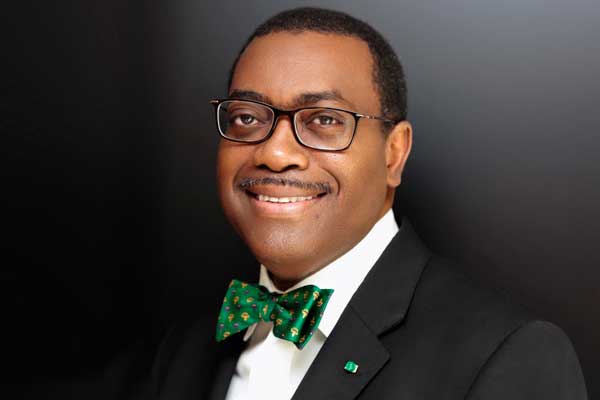President of the African Development Bank (AfDB), Akinwumi Adesina, says the global recovery from the Coronavirus (COVID-19) pandemic will depend on the world partnering in a collective endeavour backed by science, finance and political will.
Addressing the opening plenary at the Victoria Forum 2020, during a virtual event addressing the long-term socio-economic impacts of COVID-19, Adesina said: “how we come out of this pandemic, and the speed of our collective recovery, will depend on our shared collective global responsibility, to join hands to mobilize scientific and financial resources backed by strong political will.”
He highlighted a number of disparities that the pandemic has laid bare in Africa, citing the health care divide, a fiscal divide, a gender divide, and a jobs and labour divide. To illustrate his point, he noted that Africa imported 70 %to 80% of pharmaceuticals even before the onset of COVID-19, a situation worsened by the pandemic.
Still, Adesina stressed Africa’s potential and said fully tapping its natural resources and human capital underpinned the Bank’s strategy.
“We need to mobilize the domestic resources that we have—oil gas, minerals, agriculture and biodiversity, and the institutional investors, sovereign wealth funds, pension funds and all the mutual funds that we have, in total about $1.8tr.”
Adesina also emphasised the need to respond to climate change, as according to him, “by next year, 40% of the Bank’s portfolio will be in climate change, and 52% of that financing is in adaptation because that’s the challenge in Africa, rather than mitigation.”
Adesina was joined on the panel discussion themed Bridging Divides in the Wake of a Global Pandemic by Hakima El Haite, President of Liberal International, a global federation of liberal and progressive political parties; and Elizabeth Dowdeswell, Lieutenant Governor of Ontario.
Furey, said in his opening remarks that in the face of a global pandemic, it is more essential than everyone in government, business, academia and civic life draws upon their shared values to forge a path forward, said.
According to a statement by Olufemi Terry, Communication and External Relations Department of the AfDB, the forum aims to deepen understanding of the COVID-19 pandemic’s impact on economic, social and environmental divides within and across countries and communities.
It also seeks solutions to help the world “build back better, greener and more inclusively,” said Kevin Hall, President of the University of Victoria, Canada, co-host of the forum.
Dowdeswell noted the gender-specific impacts of the COVID-19 crisis, referring to the economic slowdown as a “shecession”. She stressed the importance of evidence-based decision-making and effective communication by leaders, noting “we make progress at the speed of trust”.
Commenting on whether tackling COVID-19 eclipsed the fight against climate change, Dr El Haite said both challenges were intertwined, noting that “nobody is talking about the fact that the pandemic is environmental in origin. We need to stick to implementation of Paris agreement.”
The Victoria Forum convenes discussions to tackle global challenges under the leadership of the University of Victoria’s Gustavson School of Business in Canada. The inaugural forum was held in 2017.
The 2020 edition, cohosted by the Senate of Canada and the University of Victoria, comprises plenary and roundtable sessions on a range of pandemic-related themes. Sessions include Bridging Public and Private Investment for Resilient Economics and Inclusive Recovery and Moving Beyond Divides: Towards a More Sustainable and Fairer Future for Local Communities and the Global Community.








